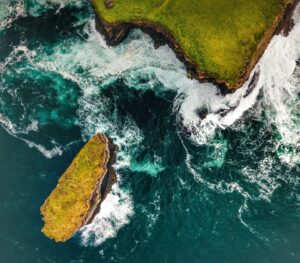The Atlantic Ocean is currently experiencing unusually low surface temperatures for this time of year, creating a perplexing situation for scientists.
Recently, surface temperatures in the Atlantic have seen notable highs as global temperatures have reached new records. However, over the last few months, a sharp and unprecedented drop in these temperatures has occurred.
Data from the National Oceanic and Atmospheric Administration (NOAA) indicates that the cooling trend in the Atlantic began in May. Currently, the Atlantic’s sea surface temperatures are about one or two degrees Fahrenheit below the seasonal average.
Typically, ocean temperatures rise during this period, partly due to human-induced climate change and partly due to a weather phenomenon known as El Niño.

El Niño involves warmer-than-average ocean surface temperatures. Since March 2023, the Atlantic Ocean has been setting new heat records, largely due to a strong El Niño event.
However, it appears that the Atlantic may be shifting towards a La Niña phase, which is characterized by cooler ocean temperatures occurring earlier than expected. La Niña events are notoriously complex and influenced by factors such as trade winds, solar heating, and rainfall, making them difficult to predict.
Experts are currently puzzled by this sudden temperature shift and the potential early onset of La Niña. Frans Philip Tuchen, a postdoctoral researcher at the University of Miami, mentioned to New Scientist, “We’ve reviewed all possible factors, but none seem to fully explain the situation.”

These unexpected changes are raising environmental concerns. NOAA suggests that shifts between El Niño and La Niña could affect rainfall patterns on nearby continents and increase the likelihood of hurricanes near the Cape Verde islands. Michael McPhaden from NOAA also notes that this could influence oceanic cycles, potentially delaying the Pacific Ocean’s La Niña as the Atlantic and Pacific engage in a “tug of war.”
The situation is still under close observation to determine whether the Atlantic will fully transition into La Niña and how this might affect climate predictions for the rest of the year.





